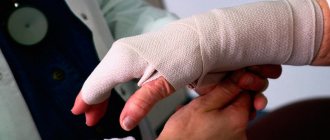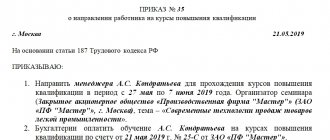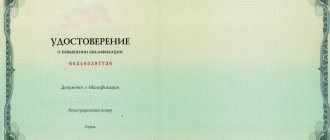Prices for legal services in criminal cases
A person’s life is under the protection of the state. No one has the right to infringe on people's health, whether through physical or psychological influence. Unfortunately, there are cases when our health is at risk. Most often this happens intentionally, for example, as a result of a street attack. However, you can also encounter the opposite situation, when harm to the body occurs due to negligence. This is a completely different situation and measures of responsibility. They should be discussed in a little more detail.
Features of harm to health due to negligence
Unintentional harm to health is the infliction of injury or impact on the psyche of another person without direct intent. Such situations are usually characterized as negligent, i.e. unintentional and not planned in advance. However, the guilty party could have foreseen the consequences and prevented the incident, but did not do so due to negligence.
The second common interpretation of the concept is the term “frivolity”. Here the offender could know about the consequences of his prank, but hoped for mitigation of the consequences or their absence at all. For example, as a result of a domestic quarrel, a wife threw a monitor out of an open window, and the object hit the head of a passerby passing below. In this case, there is evidence that a woman caused harm to health through negligence in a domestic conflict. Any commission of unintentional acts is included in the list of liability in criminal proceedings.
Composition and subjects of the crime of negligence
Considering the objective side of the crime under Art. 118 of the Criminal Code of the Russian Federation, attention should be paid to the composition of the unlawful act:
- The object will be the health of the victim, which is protected by legal acts (for example, the Constitution).
- The objective side of the issue is the active action or inaction of the person guilty of unintentionally causing harm to the body. As a rule, guilt is considered to be the commission of a certain action, as well as the consequences for the victim.
- The subject of a crime is a sane individual who has reached the age of 16 and was aware of the commission of the act.
- The subjective side is the absence of malicious intent in causing injury to another person. This includes negligence and frivolity.
Customer Reviews
Gratitude from Ivanov I express my gratitude to Vasily Anatolyevich for the correct and competent legal assistance in solving my case. I wish you and your entire company prosperity and success.
With all my heart, V.V. Ivanov. 05/10/2018
Gratitude from Gordeeva E.S. I express my special gratitude to Sergei Vyacheslavovich for his highly competent and detailed consultation on the issue of the employment contract.
Doctor of Philological Sciences, Gordeeva E.S. 12/01/2018
Gratitude from Busygin A.I. I express my gratitude to Vasily Anatolyevich Kavalyauskas for the qualified management of my case, competent advice and justification for the decision, which led to compensation of the stated claims.
Sincerely, Busygin Alexander Ivanovich
26.12.2017
Feedback from Solovyova I would like to express my deep gratitude to lawyer Konstantin Vasilyevich Solovyov for his qualified assistance in resolving my issue. The decision was made in my favor, for which I am very grateful. I would also like to express my gratitude to the company’s team for their sensitive attitude towards clients.
Gratitude from gr. Tiuntsova G. A. I asked for advice from your “Legal Agency of St. Petersburg” - regarding deception by one person who presented himself as an employee of Rospotrebnadzor of the Krasnoselsky district, Novichkov A. A. Offered me a service - before the New Year, go on a tourist trade union voucher to Moscow on the Sapsan railway transport. I refused due to the manipulation of the placement of seats - in different trains, and then by car. Lawyer Sergei Vyacheslavovich Mavrichev handled this case and provided consultations. I thank you for such a sensitive and attentive attitude in office work, which was denied at the 58th police department of the Vyborg district, under Art. 24, 144, 145 of the Code of Criminal Procedure of the Russian Federation, I now have the right to appeal the conclusion and will send an application for further investigation to the district prosecutor's office.
Tiuntsov G. A.
8
Gratitude from Guryanova T.A. I express my sincere gratitude to Vasily Anatolyevich for his professionalism and highly qualified assistance in resolving the issue of protecting my rights as a consumer. As a result, I received decent compensation from.
Thanks a lot. 07/09/2019
Gratitude from Remedova A.G. I express my gratitude to the Legal Agency of St. Petersburg, namely Denis Yuryevich Stepanov, for the assistance provided in resolving my issue, and I also express my gratitude to the entire team of the consumer rights protection society for their responsiveness and pleasant communication.
Remedova A.G. 08/17/2018
Gratitude from Plisetsky V.V. I would like to express my gratitude to Sergei Vyacheslavovich Mavrichev for his sensitive attitude and understanding towards clients. The issue was resolved within one day. I am very grateful to Sergei Vyacheslavovich.
Plisetsky V.V. October 19, 2018
Gratitude from gr. Bogodyazh N.G. I, Bogodyazh N.G. turned to the Legal Agency of St. Petersburg for help in a dispute with the company RTC JSC regarding the refusal to return the goods in accordance with the rules of trade, thereby my consumer rights were violated.
Thanks to the company’s lawyer, Stepanov D.Yu., I was able to return the money for the low-quality product, and I also received an apology from my opponent. I would like to express my gratitude for the qualified assistance provided to me by D. Yu. Stepanov and the Legal Agency of St. Petersburg.
With gratitude, Bogodyazh.
Review by G.N. Antropova To the lawyer of the Legal Agency of St. Petersburg A.V. Ermakov
I express my gratitude to you for your professionalism in protecting my interests in a criminal case, Andrey Valerievich, allow me to express my gratitude to you for your help and support. I note your high professionalism and skillful actions in defending my positions.
Best regards, G.N. Antropov
Unintentional infliction of grievous harm to human health
According to the definition, serious harm to health is a life-threatening effect on the human body.
Serious harm to health is considered:
- Loss of visual acuity or complete loss of the ability to distinguish objects in the distance;
- Partial or complete hearing loss with the inability to distinguish even close sounds;
- Loss of an organ or its normal functioning:
problems with language and speech – inability to communicate with others through articulate speech;
loss of one or more limbs - physical separation of an arm or leg from the body;
deprivation of organs responsible for human reproduction;
termination of pregnancy at any stage of gestation;
disfigurement of part of the face - damage to the skin due to the use of sharp and blunt objects for non-surgical purposes;
long-term and life-threatening mental disorders;
getting hooked on drugs or toxic substances to make you feel worse.
A period of more than 120 days is considered to have serious consequences for the body. During the specified time, the victim is in a state of incapacity or is on the verge of death.
Unintentional injury to health
Prices for legal services in criminal cases
Human life is under the protection of the state. No one has the right to infringe on people's health, whether through physical or psychological influence. Unfortunately, there are cases when our health is at risk.
Most often this happens intentionally, for example, as a result of a street attack. However, you can also encounter the opposite situation, when harm to the body occurs due to negligence. This is a completely different situation and measures of responsibility.
They should be discussed in a little more detail.
Features of harm to health due to negligence
Unintentional harm to health is the infliction of injury or impact on the psyche of another person without direct intent. Such situations are usually characterized as negligent, i.e. unintentional and not planned in advance. However, the guilty party could have foreseen the consequences and prevented the incident, but did not do so due to negligence.
The second common interpretation of the concept is the term “frivolity”. Here the offender could know about the consequences of his prank, but hoped for mitigation of the consequences or their absence at all.
For example, as a result of a domestic quarrel, a wife threw a monitor out of an open window, and the object hit the head of a passerby passing below. In this case, there is evidence that a woman caused harm to health through negligence in a domestic conflict.
Any commission of unintentional acts is included in the list of liability in criminal proceedings.
Composition and subjects of the crime of negligence
Considering the objective side of the crime under Art. 118 of the Criminal Code of the Russian Federation, attention should be paid to the composition of the unlawful act:
- The object will be the health of the victim, which is protected by legal acts (for example, the Constitution).
- The objective side of the issue is the active action or inaction of the person guilty of unintentionally causing harm to the body. As a rule, guilt is considered to be the commission of a certain action, as well as the consequences for the victim.
- The subject of a crime is a sane individual who has reached the age of 16 and was aware of the commission of the act.
- The subjective side is the absence of malicious intent in causing injury to another person. This includes negligence and frivolity.
01
Free consultation with a criminal lawyer, click here
02
Free hotline (Moscow and regions of the Russian Federation)
8 03
We accept applications around the clock, a lawyer will call you back in 10 minutes
Prices for legal services in criminal cases
Punishments for committing crimes under Article 118 of the Criminal Code of the Russian Federation depend on the severity of the act. So, if the victim escapes with minor injuries, the culprit may be fined. But if negligence causes serious damage to the body, the court has the right to impose a sentence of imprisonment.
Unintentional infliction of grievous harm to human health
According to the definition, serious harm to health is a life-threatening effect on the human body.
Serious harm to health is considered:
- Loss of visual acuity or complete loss of the ability to distinguish objects in the distance;
- Partial or complete hearing loss with the inability to distinguish even close sounds;
- Loss of an organ or its normal functioning:
problems with language and speech – inability to communicate with others through articulate speech;
loss of one or more limbs - physical separation of an arm or leg from the body;
deprivation of organs responsible for human reproduction;
termination of pregnancy at any stage of gestation;
disfigurement of part of the face - damage to the skin due to the use of sharp and blunt objects for non-surgical purposes;
long-term and life-threatening mental disorders;
getting hooked on drugs or toxic substances to make you feel worse.
A period of more than 120 days is considered to have serious consequences for the body. During the specified time, the victim is in a state of incapacity or is on the verge of death.
Causing minor and moderate harm to health through negligence
Unintentional actions can lead to not only serious but also minor injuries to others. When determining the measure of liability under Art. 118 of the Criminal Code of the Russian Federation, courts look at the degree of threat to health. If it is insignificant, then the culprit can get off with a fine or compulsory labor.
Minor and moderate injuries are considered to be:
- Open wounds (cuts, lacerations, etc.);
- Bone fractures (arms, legs, ribs, collarbones);
- Concussion;
- Bruises and burns of soft tissues;
- Other types of damage.
In many cases, harm to health can be expressed not so much in physical injuries, but in psychological distress. Such situations also refer to causing mild to moderate harm to the body.
When a guilty person commits an act through negligence, he faces punishment under Part 1 of Art. 118 of the Criminal Code of the Russian Federation. If frivolity is committed on the part of an official (for example, an attending physician), then liability is qualified under Part.
2 of the said law.
What is the threat to criminals?
According to statistics, health injuries are most often caused by negligence by professional medical workers. In second place are injuries during arrest by law enforcement officers.
According to Art. 118 of the Criminal Code of the Russian Federation, careless infliction of injury entails the following types of punishment:
- Imposition of a fine of up to 80 thousand rubles or withholding of income for a period of up to six months;
- Compulsory work for up to 200 hours;
- Forced labor for 2 years;
- Seizure for a period of 3 to 6 months;
- Imprisonment for up to 3 years or “probation”.
Negligent attitude towards professional work, as a result of which the victim suffered health problems, is punishable by:
- Seizure for up to 1 year;
- Imprisonment for the same period of time.
In some cases, the person guilty of negligent injury is prohibited from holding certain positions for up to 3 years, but this happens extremely rarely.
Useful information on criminal cases
Causing minor and moderate harm to health through negligence
Unintentional actions can lead to not only serious but also minor injuries to others. When determining the measure of liability under Art. 118 of the Criminal Code of the Russian Federation, courts look at the degree of threat to health. If it is insignificant, then the culprit can get off with a fine or compulsory labor.
Minor and moderate injuries are considered to be:
- Open wounds (cuts, lacerations, etc.);
- Bone fractures (arms, legs, ribs, collarbones);
- Concussion;
- Bruises and burns of soft tissues;
- Other types of damage.
In many cases, harm to health can be expressed not so much in physical injuries, but in psychological distress. Such situations also refer to causing mild to moderate harm to the body. When a guilty person commits an act through negligence, he faces punishment under Part 1 of Art. 118 of the Criminal Code of the Russian Federation. If frivolity is committed on the part of an official (for example, an attending physician), then liability is qualified under Part 2 of this law.
Causing serious harm to health through negligence Art. 118 of the Criminal Code of the Russian Federation
Negligence means a lack of intent to cause such consequences in the form of serious harm to health. The article itself is relatively short and does not provide a clear understanding of the crime. So what is its distinguishing feature? How can one cause serious harm to health without intent?
It's simple. As an example, consider a standard quarrel, which usually does not lead to serious consequences. One of the disputants, in a fit of emotion, could push his interlocutor, not wanting to injure him. However, an unsuccessful fall can cause serious injury, traumatic brain injury, for example. Or even lead to the death of the victim, if everything turns out most unsuccessfully for the latter. The cause of death of the victim may be a sharp corner, a fall from a height, or any other little thing that ultimately plays a fatal role. However, if we consider such a case, the death of the victim as a result of these actions will be subject to another article, namely Art. 109 of the Criminal Code of the Russian Federation , since it will constitute causing death by negligence.
The punishment is precisely for grievous harm under Art. 118 of the Criminal Code of the Russian Federation may be:
- A fine, the amount of which can reach 80 thousand rubles . Its size can also be the amount of income or wages of the perpetrator for a period of up to six months ;
- Compulsory work for up to 480 hours ;
- Correctional labor for up to two years ;
- Restriction of freedom for up to three years ;
- Arrest for up to six months .
Separately, serious harm that was caused by a person in the performance of his professional duties is already considered . Such cases may include some medical errors. Most often, this is the introduction of some kind of infection due to the negligence of medical personnel. The punishment for this factor will be somewhat stricter.
Info
There is also innocent infliction of such serious harm. As a rule, initiation of criminal proceedings in such cases is refused. The distinctive feature is that the person who caused the harm could not have known that harm as such could be the outcome of the situation.
What is the threat to criminals?
According to statistics, health injuries are most often caused by negligence by professional medical workers. In second place are injuries during arrest by law enforcement officers.
According to Art. 118 of the Criminal Code of the Russian Federation, careless infliction of injury entails the following types of punishment:
- Imposition of a fine of up to 80 thousand rubles or withholding of income for a period of up to six months;
- Compulsory work for up to 200 hours;
- Forced labor for 2 years;
- Seizure for a period of 3 to 6 months;
- Imprisonment for up to 3 years or “probation”.
Negligent attitude towards professional work, as a result of which the victim suffered health problems, is punishable by:
- Seizure for up to 1 year;
- Imprisonment for the same period of time.
In some cases, the person guilty of negligent injury is prohibited from holding certain positions for up to 3 years, but this happens extremely rarely.
Author of the article
Dmitry Leonov
Work experience 15 years, specialization - housing, family, inheritance, land, criminal cases.
Author's rating
721
Articles written
712
about the author
Useful information on criminal cases
- What to do if your husband beat you?
- Beating up a policeman
- The procedure for removing beatings
- Article for beating a minor child
- Causing minor harm to health
- Statement of battery - sample
- Husband threatens physical harm and murder
- If a person threatens violence, what to do?
- Where to go if a child is beaten at school
- How to write a statement to the police about beating
- Causing grievous bodily harm
- Expertise of beatings
- Criminal liability for kidnapping
- Assault by a group of persons
- Exceeding permissible self-defense - article
- Injury at work: what should an employee do?
- Punishment for beatings
- Limits of Necessary Defense
- Unintentional injury to health
- Infliction of moderate bodily harm
Court decisions
The culprit of the accident fled the scene
The driver and the insurance company paid the hit pedestrian 700 thousand rubles
Hiding from the scene of an accident: how to prove the driver’s innocence?
Fraudulent attempt to recover part of the damage from the culprit of the accident
Accident with oncoming traffic: a drunk driver fled the scene of the accident
The insurance company inflated the cost of repairs











